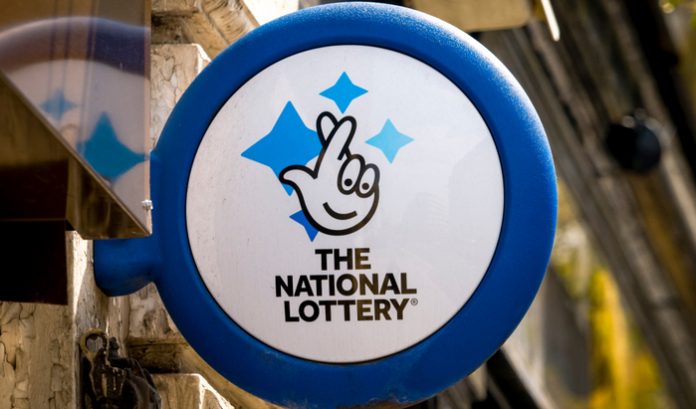UK National Lottery operator Camelot UK Lotteries Limited has announced that lottery sales for the year surpassed £8bn for the first time in 2020/21 thanks to growth across all sectors, resulting in the best-ever returns to good causes from sales revenue alone.
Camelot declared National Lottery sales of £8.37bn for the 2020/21 financial year (April 1, 2020, to March 31, 2021), an increase of £468.8m on the previous year.
The operator stated that despite the impact of the pandemic on sales last spring, ‘swift interventions’ supported a ‘speedy recovery’ which allowed the lottery’s distributors to award more than £1bn in funding to good causes across the UK in response to COVID-19.
Chairman Sir Hugh Robertson commented: “This is the fourth consecutive year of rising sales since our strategic review in 2017. The National Lottery has delivered for the UK again this year, with the highest-ever returns for good causes from sales alone. A remarkable £1.2bn has been distributed to help the country respond to the impact of coronavirus. Without this money, many organisations would have ceased to function.
“This has been achieved by making the right strategic calls as a business alongside the support of players and the wider National Lottery family. I would like to thank the government, the National Lottery distributors, our retail partners and, most importantly, National Lottery players – without whom this remarkable success story would not have been possible.”
Camelot declared growing sales of all six of the lottery’s draw-based games to £4,690.7m, an increase of £153.6m. Lotto was the primary driver behind this growth with the introduction of a new feature in November that allows around a million players to win an additional cash prize of £5 for matching two main numbers in a ‘Must Be Won’ Rolldown draw.
The operator noted that the lottery’s newest draw game in its portfolio, Set For Life, continues to exceed expectations, while EuroMillions grew marginally despite depressed ticket sales in some partner countries.
Instants sales for the lottery grew to £3,683.2m, with online instant games sales growth offsetting a decline in scratchcard sales which were down year-on-year due to lower retail footfall. Digital player registrations helped to drive growth, up 2.7 million in the year. Fewer than two online instant games were played per person per week on average, meaning the average digital weekly spend remained broadly flat, up less than 3%.
The lottery recorded its highest ever digital sales at £3,509.5m, an increase of £1,052m, up 42.8% on the previous year. Due to the pandemic’s impact on retail footfall, digital growth was expected, and in March 2020, the Camelot Board approved an accelerated investment plan for the digital channel to ensure additional traffic could be accommodated.
This allowed the lottery to handle a record number of players online if they chose to switch or play online for the first time. It also used its Contact Centre to help players not accustomed to using digital services.
Mobile sales grew by £876.4m to an all-time high of £2,481.9m, with the majority of these sales coming through the lottery’s apps. The lottery made it easier for people who might traditionally play in retail to play online by improving resources on its technical support helpline, introducing ‘how to’ videos and making several user experience improvements.
Even with retail making a recovery post the period end, Camelot noted it continues to see players using the lottery’s apps and playing online, reinforcing its view that the channels can support one another with the right approach, allowing the operator to provide a better and more personalised experience to players while making sure the lottery is always available.
Factoring in unclaimed prizes, Camelot noted that £1,887.5m was generated for good causes in 2020/21, the equivalent of £36m every week. Lottery Duty to the government also exceeded £1bn for the first time, contributing to £3.1bn that was delivered to society through good causes returns, Lottery Duty, and retailer commission, which is another record number.
With approximately 1% of sales retained as profit by Camelot under the terms of its licence, and 4% spent on operating costs during the period, the lottery continued to return around 95% of all sales revenue to winners and society.
CEO Nigel Railton said: “In what has been an extraordinarily challenging year, The National Lottery has demonstrated incredible resilience and flexibility to achieve this record performance. These results are a culmination of all of the work we’ve done over the last few years in the areas of brand, games, retail and digital.
“This, together with our years of experience and longstanding commitment to being a world leader in healthy play, has helped us ensure this vital boon for society when it’s been needed most. And it’s these strengths that mean that we will continue to deliver for the benefit of everyone.”
Railton continued: “My first priority last March was to look after the people who work for us and ensure our operations would be fit to manage whatever came our way. So I’m particularly proud that Camelot was recognised by Best Companies not just for being in the top 10 large employers in the UK, but with a special award for wellbeing. Throughout the pandemic, we looked after them, and they looked after the operations of The National Lottery and, for that, I’d like to say a huge thank you.
“We know that last year could have been very different and it reminds us we can take nothing for granted. In the year ahead, we’ve got plans to give players more reasons to play and more ways to enjoy the fantastic projects made possible by The National Lottery. For that reason, I’m more optimistic than ever.”




























